5 Best Tips on Dog Dental Care
For a long time, dog dental care was often overlooked and discarded as insignificant, but luckily, things have changed, and today, a dog’s oral hygiene is part of the regular grooming process. Regular brushing is essential for your pup just as maintaining proper oral hygiene is crucial for you. It is important not just for the sake of fresh breath, but your dog’s overall health, as well. Certain dental problems such as toothache and sore gums can eventually lead even to life-threatening infections if not taken care of, so you should take it seriously.
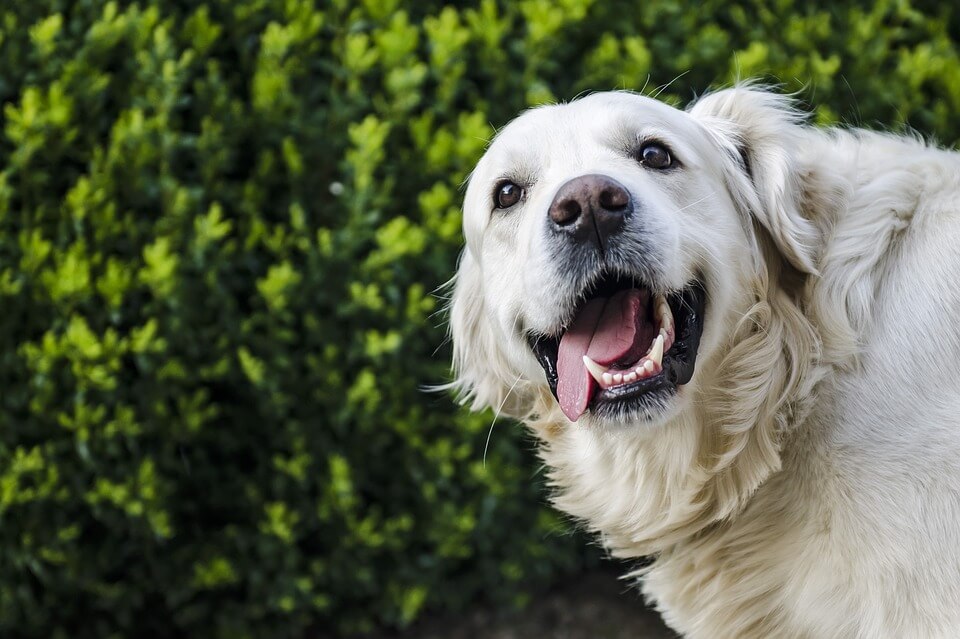
Being a dog owner comes with responsibility and constant concern for your furry friend. So, we assume that you’ve got quite a few questions, starting with What is the best dental care for dogs? The answer to this one probably depends on your own preferences, as well as on a particular breed. There is no doubt that toothbrushing is the most effective way to keep your dog’s chompers and gums healthy at home. But we’d like to mention some other ways, too.
Furthermore, you’re probably also wondering How much does it cost to have your dog’s teeth cleaned?, How can I get plaque off my dog’s teeth? and Do dental water additives for dogs work? These are some of the most common questions that we will be more than happy to answer. Without further ado, here are the answers you’re looking for and some useful tips on how to keep your dog’s mouth clean and healthy.
Whether You Have a Small or Large Dog, It’s Best to Start With Toothbrushing at an Early Age
There are some differences between small and large dogs when it comes to the oral cavity. For instance, small dogs tend to have more issues with tartar, plaque, and calculus buildup. In addition to these, large breeds are also more likely to experience some more traumatic injuries. These usually include broken jaws and fractured tooth tips. In any case – bacteria accumulated along your pooch’s gums can lead to periodontal disease or even reach the bloodstream.
The point is – whatever breed you have, your pup’s oral hygiene is crucial for keeping your pet away from more alarming health issues. So, be it a small or a large one, it’s best that your dog starts getting used to the toothbrush as early as possible. Not many dogs enjoy it when you brush their teeth, but they are less likely to refuse it if you start while they’re still puppies.
Pick the Best Possible Toothpaste and Consider Using Water Additives
Choosing the right toothpaste is of paramount importance. Therefore, you should think way beyond just fresh breath. In addition to scrubbing ingredients that wash away stains and plaque, your preferred toothpaste should also contain enzymes-reducing bacteria. Another crucial thing to remember is that you should never use human toothpaste because it can be toxic to your canine friend if he happens to swallow it.
In addition to toothpaste, you can also use water additives to eliminate bacteria causing plaque and tartar in your dog’s mouth. Particular chemicals used in these products reduce bad breath, prevent calculus, and kill microbes. They do work, and, more importantly, they are safe to use.
Water additives are an excellent solution for those pets that refuse to have their chompers brushed regularly. All you need to do is to drop the additives into your pet’s drinking water. Keep in mind, though, that water additives can never fully replace toothbrushing. You wouldn’t replace brushing your teeth with using only mouthwash, right?
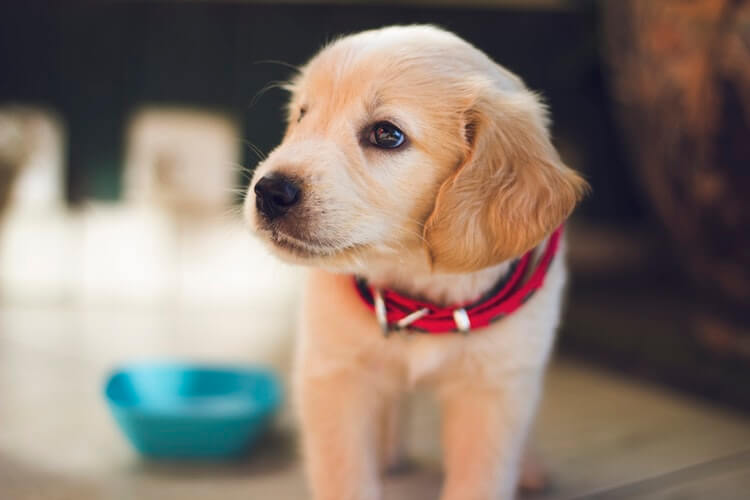
Count on Dental Treats to Do the Trick
If there’s one thing that all dogs have in common, then that is, without a doubt, their love for treats. Here’s some good news – treats do more than bring pleasure to your furry friend. They are considered to be a rather strong tool in keeping your puppy’s mouth clean. Dental treats are made to remove plaque buildup, as well as to freshen breath due to some special ingredients. The very act of chewing these treats helps remove food particles and calculus from the surface. In addition to that, the treats are also good for massaging the gums.
Depending on your pup’s likes and preferences, you can choose from a variety of shapes and sizes, as well as flavors. Those shaped like bones are probably the most popular ones. As for the question of which treats to buy, there are various trustworthy brands, such as Pedigree, Purina, and Vet’s Best.
Know What Food Improves Dental Health in Dogs
When it comes to snacks, you need to be careful about what you feed your pooch, as this choice can affect its health. To start with, remember that dry food is better than soft food. The explanation is quite simple – soft food is more likely to stick to the teeth and then lead to decay. Feeding your canine friend dry food is, thus, even more important if your pet refuses regular toothbrushing.
According to many veterinarians, raw meaty bones and other raw food help resist bacterial plaque, which makes it good for your pet’s health. Some studies have shown that chronic oxidative stress is linked with chronic periodontitis, which means antioxidants also play a vital role in your pup’s diet. It would be a good idea to include fatty acids and probiotics, too. In addition to being good for periodontal tissues, fatty acids are also crucial for the heart, kidneys, and brain, while probiotics are necessary for the entire gastrointestinal tract.
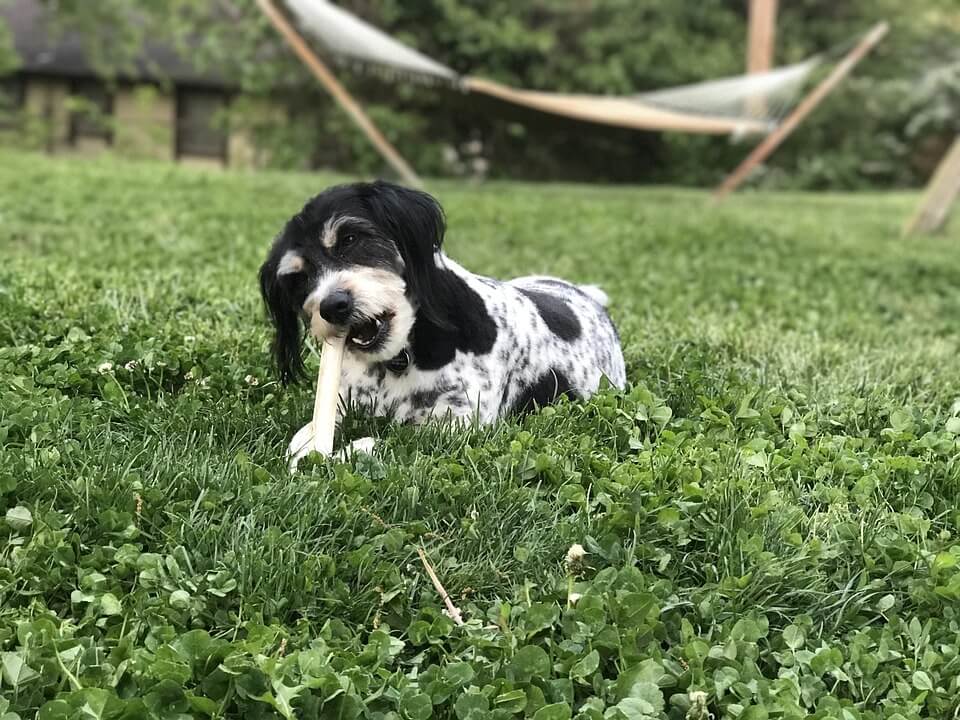
Don’t Underestimate the Power of Dog Chews
Giving your pup chew toys is another great way to improve oral health and strengthen gums. We all know just how much our canine friends like to have something to gnaw on, so that might as well be something that cleans their chompers, right?
Many veterinarians recommend using chew toys, but only as an addition to toothbrushing, as they are beneficial, but not enough on their own. The very act of gnawing scrapes the plaque and tartar, which, combined with regular toothbrushing, is bound to keep your dog’s chompers and gums in good condition.
Keep in mind that it’s in your dog’s nature to gnaw on things, so you can be sure your pup will find something if there aren’t any chews around in your home. This can be dangerous in case your furry friend reaches for some sharp objects that can hurt him. So, to be on the safe side, it would be good to always have plenty of chews for your pet to play with (and clean the chompers along the way).
Beware of Potential Risks
While chew toys are primarily considered beneficial, there are some potential risks to be aware of, too. Before you toss a chew toy to your pooch, check whether there are any harmful ingredients. Certain ingredients that some of these toys may contain allegedly can cause illness or even death, so you need to be extra careful when buying chews. Even if these assumptions are not true, why take the risk, right?
It is crucial that you avoid indigestible chews. Of course, you’re not buying chew toys for your pup to eat it, but you should be prepared for that scenario, too. If your pooch swallows the toy by accident, you’ll want it at least to be digestible, right?
You should also stay clear from chew toys that are too hard. If the toy is too hard, gnawing on it can lead to tooth fracture or other injuries. You should check to be sure your chosen toy is not too hard by banging it on your knee – if it hurts you, it means it’s too hard.
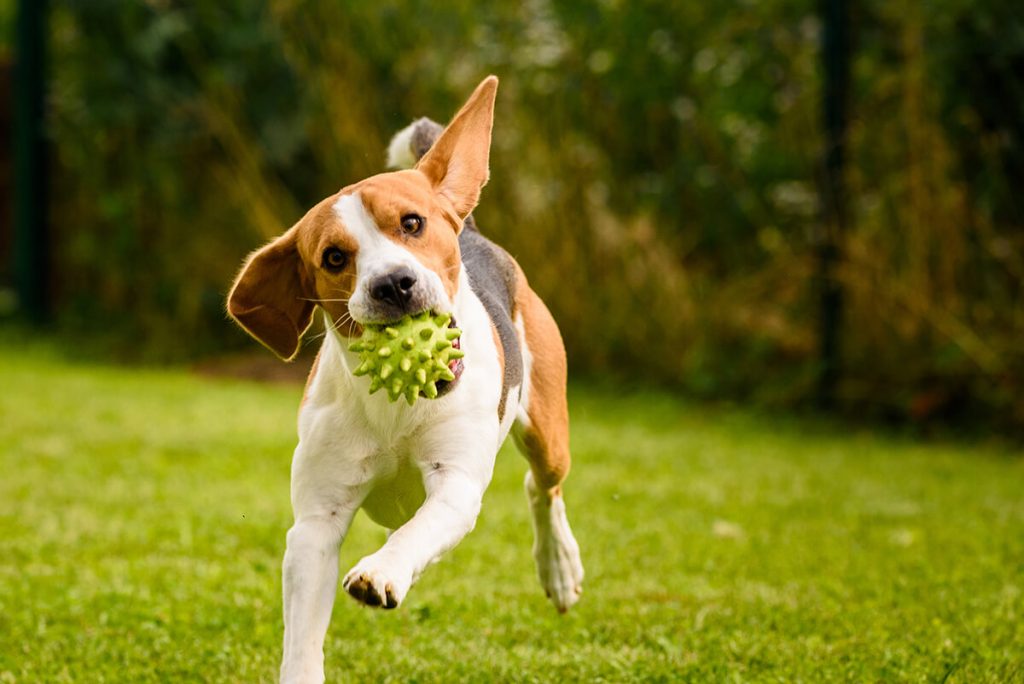
Combine Different Techniques
Everything we’ve mentioned so far is good for your dog’s oral hygiene, and it’s easy to apply at home. Some methods are more effective than others, so you should combine several techniques for superb results. If your pup doesn’t like toothbrushing, that doesn’t mean that you get to give up. In addition to water additives, treats, and chew toys, it might be a good idea to add tooth wipes, too.
Use Tooth Wipes If Your Pet Doesn’t Like Toothpaste
Dental wipes for canines are similar to those for toddlers – soft and uniquely textured to clean teeth and gums gently. They are suitable for all breeds and come in various flavors so that your pup gets used to them more easily. If your furry friend seems to refuse toothpaste and toothbrush, these wipes can be a great way to slowly introduce oral hygiene routine, one step at a time. Just like it was the case with the previously mentioned, wipes aren’t enough when used alone. Rely on them for a start and then move on to toothbrush as your pup adjusts to the routine.
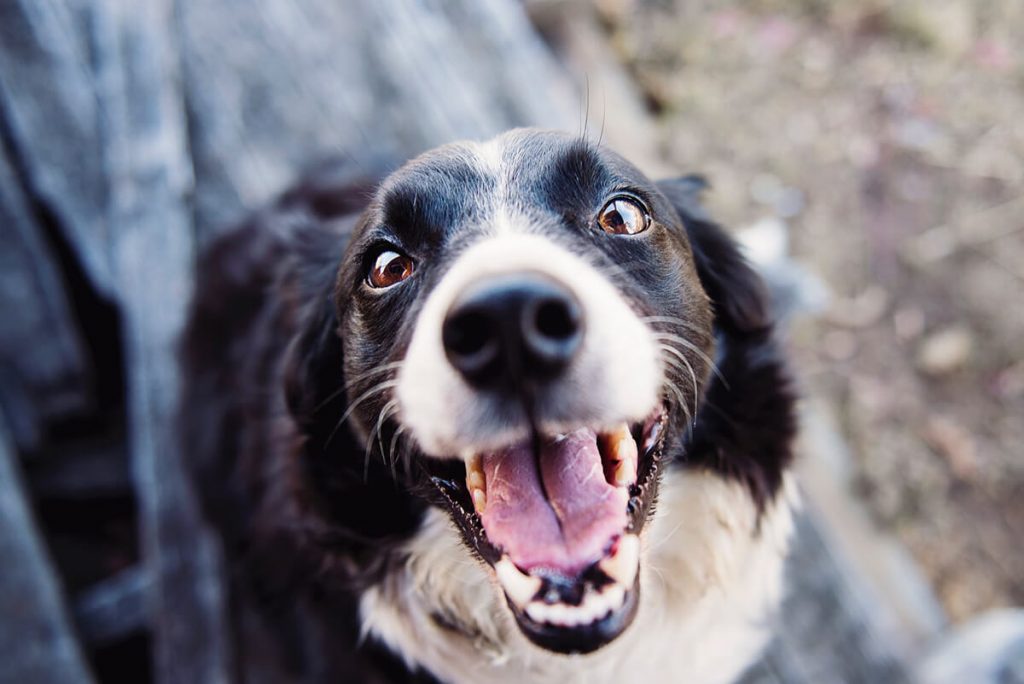
Take Dogs to the Vet for Professional Cleaning
All of the previously mentioned techniques are necessary and quite helpful, but even when combined, they are not as effective as professional cleaning.
Even though professional cleaning is more expensive than any of the previously mentioned, it’s worth every penny. The price usually depends on the time it takes to complete this procedure, but it usually costs a few hundred dollars. If you’ve waited too long and the plaque and tartar have built up, the procedure will probably cost you more. Speaking of which, let’s see how often you should look for professional help.
How Often to Seek Professional Dog Dental Care?
No matter how often you brush your dog’s chompers, don’t forget that you still need to seek professional help every once in a while. To be more precise, you should have your pet’s chompers professionally cleaned every six months or once a year.
You should also look for some signs telling you that something may be wrong and take your faithful friend to a vet for a check-up. As a responsible pet owner, you should check for these signs regularly:
- Bad breath
- Excessive drooling
- Red, swollen, or bleeding gums
- Discolored or crooked teeth
- Any change in eating or chewing habits
Should you notice any of these symptoms of dental disease, don’t wait a single second, but take your pup to a vet immediately. It doesn’t necessarily mean that it’s something you should be afraid of, but it’s always better to turn to professionals. Waiting for any of these issues to just go away is never the solution.
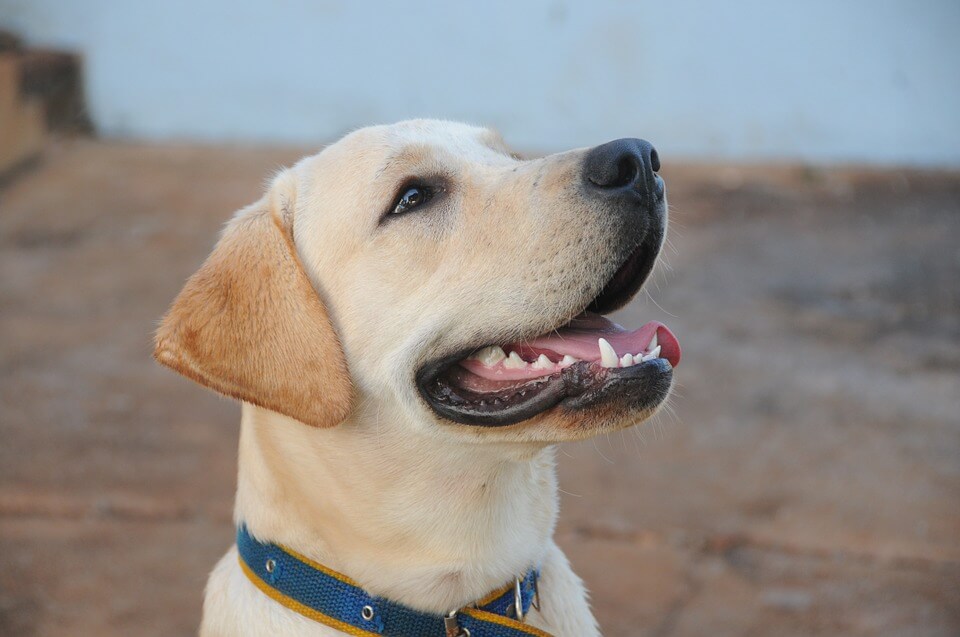
Summary
As you can see, keeping your pet’s chompers, gums, and entire mouth is of paramount importance to avoid disease. You should stick to these tips to be sure you’re doing everything you can to prevent any further issues that can arise from the lack of hygiene. If you’re just getting a puppy, be sure you implement toothbrushing as a part of its routine as early as possible. If you already have a grown dog, don’t worry – adult dogs, too, can get used to it, they just might need more time. Don’t forget about additional helpful tools such as treats, chew toys, and wipes.
Do whatever is in your power, but do not hesitate to turn to professional help, too. You should do whatever you can to make your furry friend healthy and happy, from regular professional teeth cleaning to a luxury pet spa. Your faithful companion deserves only the best, right?